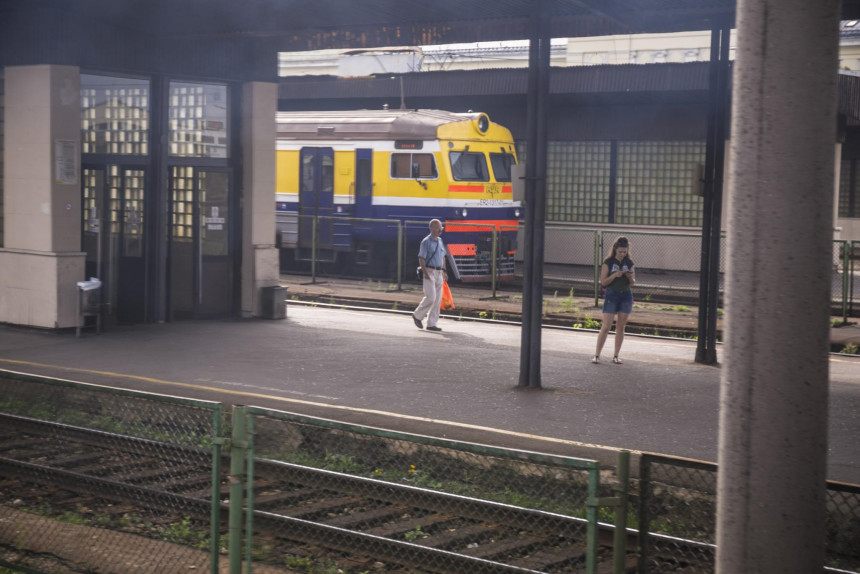Krišjānis Kariņš's government persuaded society to renew Soviet-era forms of resistance

I have not lived in Riga for several years, so I rarely use its public transport. It happened that on May 14 it was more convenient and easier for me to travel by train.
I knew that from May 15 wearing face masks on public transport would no longer be compulsory, but on 14 May masks were still compulsory. On March 31, knowing that the wearing of masks would be abolished from April 1, supermarket security guards required all visitors to wear a face mask, and visitors were all disciplined and wore them. Remembering this, I took with me the now-forgotten attribute of the Covid era, which I put on as a law-abiding citizen before boarding the train. But of the fifty or so passengers in the carriage, no one had a face mask. No one! A couple of dozen pairs of eyes looked at me as if I were a weirdo. I couldn't take it and took off my mask. The audience's interest in me disappeared instantly. Meanwhile, the carriage loudspeaker kept repeating that only passengers wearing a mouth and nose covering were allowed to travel by train. The only person wearing a face mask during the journey was the ticket seller. I asked her why she was wearing a mask, pointing out that no one, not a single passenger, uses one. Tomorrow, everyone would be able to travel without a mask, and it'll be perfectly legal. The conductor sadly explained that if anyone took a picture of her in uniform without a mask during work hours and posted it on social media or sent it to the company management, she would be fired. "I'll take it off tomorrow," the woman promised.
By the afternoon, on the way back, the carriage was fuller. There were about a hundred passengers. Two older women and one family with small children were wearing masks. All the others had no masks, but the conductor (who had a face mask) did not reprimand anyone, even though the loudspeaker in the carriage kept announcing that only those passengers who wore a mask covering their mouth and nose would be allowed to travel on the train.
Unfortunately, the moral of the story is very sad. The state authorities have disastrously compromised themselves during the Covid years. The time of Covid has fundamentally changed Latvian society. People have stopped complying with meaningless but obligatory demands, and en masse. This means that the state has no authority. The majority does not trust the state. In some places, people's attitudes are beginning to resemble Soviet times. 35 years ago and before, all sorts of bans and restrictions were imposed. There were bans on buying and selling, there were bans on distributing books that were harmful from the point of view of the Soviet authorities. There was a ban on listening to radio stations from other countries. Certain professions (teachers) were threatened with dismissal if they openly belonged to some religion, and so on. Many of the Soviet prohibitions were only respected by the public if there was a risk of being caught. If the risk was small, then Soviet prohibitions were violated en masse - reading banned books, singing banned songs, listening to banned radio stations, selling property for more than the official price (this was called profiteering and was punishable), etc.
In the train carriage on May 14, I felt like I had returned to the Soviet Union. The majority of people in Latvia today first assess whether a rule, prohibition or restriction imposed by the authorities is reasonable. Restrictions and prohibitions that are judged to be wrong and irrational are not obeyed, unless they carry a really unpleasant penalty.
This change in public sentiment is the result of the policies of the Krišjānis Kariņš government. The nonsensical, Covid-hysterical actions of the government have shattered the confidence of the majority of society in the authorities.
A normal, democratic and civilized society must be governed not by repression, by demanding compliance with nonsensical rules of law, but by avoiding the adoption of rules which the majority of society will not respect anyway. The actions of the authorities must be rational and in the public interest.
It is terrible to live in a country where the authorities do not have the confidence of the people and where public obedience can only be achieved through the threat of punishment.
Whichever party each of us votes for in the autumn, I call for people to support reason. There are reasonable people in all parties and on all lists. Let us strike out those who have compromised the authority of the government and the public authorities. Let us stop supporting those who are driving Latvia back into Soviet authoritarianism. Let us build a Latvia in which laws and restrictions are reasonable and fair, and where citizens willingly obey them without threats or coercion.